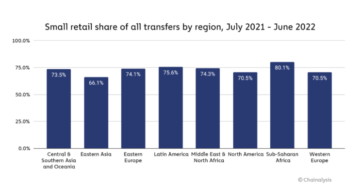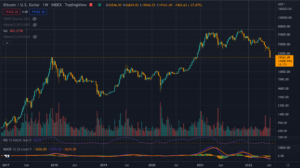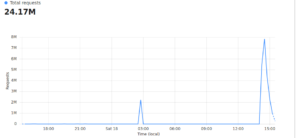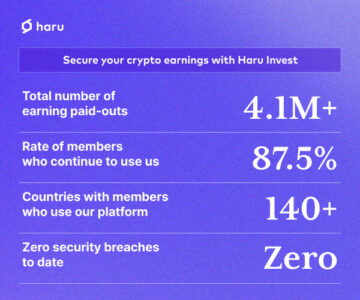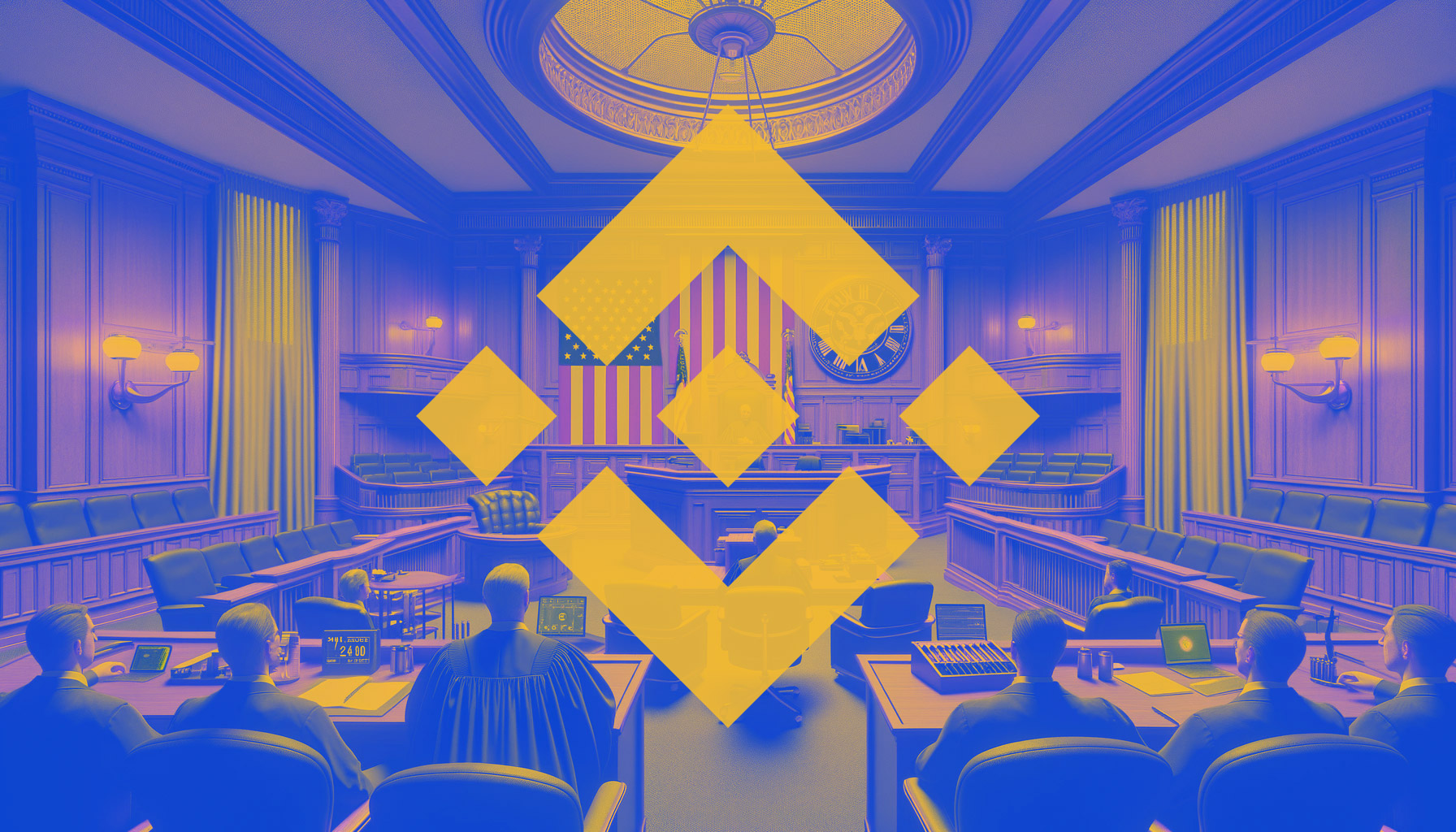
A Monday court hearing addressed the U.S. Securities and Exchange Commission (SEC)’s ongoing charges against Binance, Reuters reported on Jan. 22.
Binance lawyer Matthew Gregory argued during the hearing that the SEC has not set clear regulations for the cryptocurrency sector. He said:
“The SEC to this day has been talking out of both sides of its mouth when it comes to crypto tokens … They’re telling the industry (to) come in and register, while simultaneously with their other hand holding the door closed and preventing any viable path to do that.”
SEC lawyers countered that that one test, implied to be the Howey Test, is intended to be applied to financial products in a flexible manner. SEC lawyers said that there is “no bright line” for distinguishing securities and non-securities.
Binance otherwise asked Judge Amy Berman Jackson, who is presiding over the case, to dismiss the SEC’s charges against it and related parties.
The SEC originally charged Binance and its former CEO, Changpeng Zhao, in June 2023. It alleged that the company operated unregistered national securities exchanges and other services, misrepresented Binance.US’ trading controls and oversights, and carried out unregistered offers and sales of securities.
Binance’s court date follows a Jan. 17 hearing concerning similar SEC allegations against Coinbase, its competitor. Coinbase argued for dismissal as well.
Judge was highly critical of Binance
Various accounts of the current hearing suggest that Judge Jackson was highly critical of Binance’s arguments throughout its testimony.
Reuters stated that Judge Jackson was dismissive of one argument in which Binance lawyers relied on major questions doctrine. That argument suggests that the SEC cannot take certain regulatory actions without approval from Congress.
Fortune reporter Leo Schwartz, meanwhile, said that Judge Jackson was resistant to Binance’s assertion that securities offerings must involve contracts. Judge Jackson quipped “You’re being a little too cute” and responded that the Howey Test includes broader language. She then criticized an analogy in which Binance argued that baseball cards, which are generally not considered securities, share some similarities with the products currently under discussion.
According to crypto lawyer Jeremy Hogan, the judge was also critical of Binance’s fair notice defense. This line of argument suggests that the SEC should have informed Binance that it had committed securities violations before filing charges.
Judge addressed SEC arguments as well
Judge Jackson likewise questioned the SEC closely, according to another account of proceedings from Blockworks journalist Casey Wagner.
In its original set of charges, the SEC argued that Binance’s own cryptocurrencies, including BNB and its largely defunct Binance USD (BUSD) stablecoin, are securities. The SEC also argued that several other tokens that are handled but not issued by Binance are securities as well — including but not limited to Cardano (ADA), Polygon (MATIC), and Solana (SOL).
Jackson was critical of those arguments, as she stated:
“If it’s so obvious that these are securities, where has the [SEC] been? And why isn’t it relevant that the SEC took the opposite position or no condition for so many years?”
Later, an SEC lawyer responded that the Howey Test is clear that regulators do not need to contact parties to remind them of possible violations.
Judge Jackson additionally expressed concerns over the several third-party tokens that Binance handles but is not responsible for issuing. She said that she is “concerned about the discovery and many trials” that each named asset may generate, noting that issuers are not parties in the lawsuit at present.
The SEC’s claims otherwise rest partially on the assertion that many ongoing efforts involving the relevant crypto assets come with a “reasonable expectation of profit,” which satisfies one part of the Howey Test. However, it remains to be seen how the SEC will argue its case in future proceedings.
- SEO Powered Content & PR Distribution. Get Amplified Today.
- PlatoData.Network Vertical Generative Ai. Empower Yourself. Access Here.
- PlatoAiStream. Web3 Intelligence. Knowledge Amplified. Access Here.
- PlatoESG. Carbon, CleanTech, Energy, Environment, Solar, Waste Management. Access Here.
- PlatoHealth. Biotech and Clinical Trials Intelligence. Access Here.
- Source: https://cryptoslate.com/binance-and-sec-both-criticized-by-judge-during-latest-court-hearing/
- :has
- :is
- :not
- :where
- 22
- 7
- 8
- a
- About
- According
- Accounts
- actions
- ADA
- Additionally
- addressed
- against
- Allegations
- alleged
- also
- amy
- an
- and
- Another
- any
- applied
- approval
- ARE
- argue
- argued
- argument
- arguments
- AS
- asset
- Assets
- At
- Baseball
- BE
- been
- before
- being
- berman
- binance
- Blockworks
- both
- Both Sides
- Bright
- broader
- BUSD
- but
- by
- cannot
- Cards
- carried
- case
- casey
- ceo
- certain
- charged
- charges
- claims
- clear
- closed
- closely
- coinbase
- come
- comes
- commission
- committed
- company
- competitor
- concerning
- Concerns
- condition
- Congress
- considered
- contact
- contracts
- controls
- Court
- critical
- crypto
- Crypto Lawyer
- CRYPTO TOKENS
- crypto-assets
- cryptocurrencies
- cryptocurrency
- Current
- Currently
- Date
- day
- Defense
- defunct
- discovery
- discussion
- Dismiss
- do
- Door
- during
- each
- efforts
- exchange
- Exchange Commission
- Exchanges
- expectation
- expressed
- fair
- Filing
- financial
- financial products
- flexible
- follows
- For
- Former
- former ceo
- from
- future
- generally
- generate
- had
- hand
- Handles
- Have
- he
- hearing
- highly
- holding
- How
- However
- Howey
- Howey Test
- http
- HTTPS
- implied
- in
- includes
- Including
- industry
- informed
- intended
- Investopedia
- involve
- involving
- Issued
- issuers
- issuing
- IT
- ITS
- Jackson
- Jan
- Jeremy Hogan
- journalist
- jpg
- judge
- language
- latest
- lawsuit
- lawyer
- Lawyers
- LEO
- Limited
- Line
- little
- major
- manner
- many
- Matic
- matthew
- May..
- Meanwhile
- Monday
- mouth
- must
- Named
- National
- Need
- no
- Notice..
- noting
- obvious
- of
- Offerings
- Offers
- on
- ONE
- ongoing
- operated
- opposite
- or
- original
- originally
- Other
- otherwise
- out
- over
- own
- part
- parties
- path
- plato
- Plato Data Intelligence
- PlatoData
- position
- possible
- present
- preventing
- Proceedings
- Products
- Profit
- Questioned
- Questions
- register
- regulations
- Regulators
- regulatory
- related
- relevant
- remains
- reporter
- resistant
- responsible
- REST
- Reuters
- s
- Said
- sales
- SEC
- sector
- Securities
- Securities and Exchange Commission
- seen
- Services
- set
- several
- Share
- she
- should
- Sides
- similar
- similarities
- simultaneously
- So
- SOL
- some
- stablecoin
- stated
- suggest
- Suggests
- Take
- talking
- telling
- test
- testimony
- that
- The
- their
- Them
- then
- There.
- These
- third-party
- this
- those
- throughout
- to
- Tokens
- too
- took
- Trading
- u.s.
- U.S. Securities
- U.S. Securities and Exchange Commission
- under
- unregistered
- USD
- viable
- Violations
- was
- WELL
- when
- which
- while
- WHO
- why
- will
- with
- without
- years
- zephyrnet








